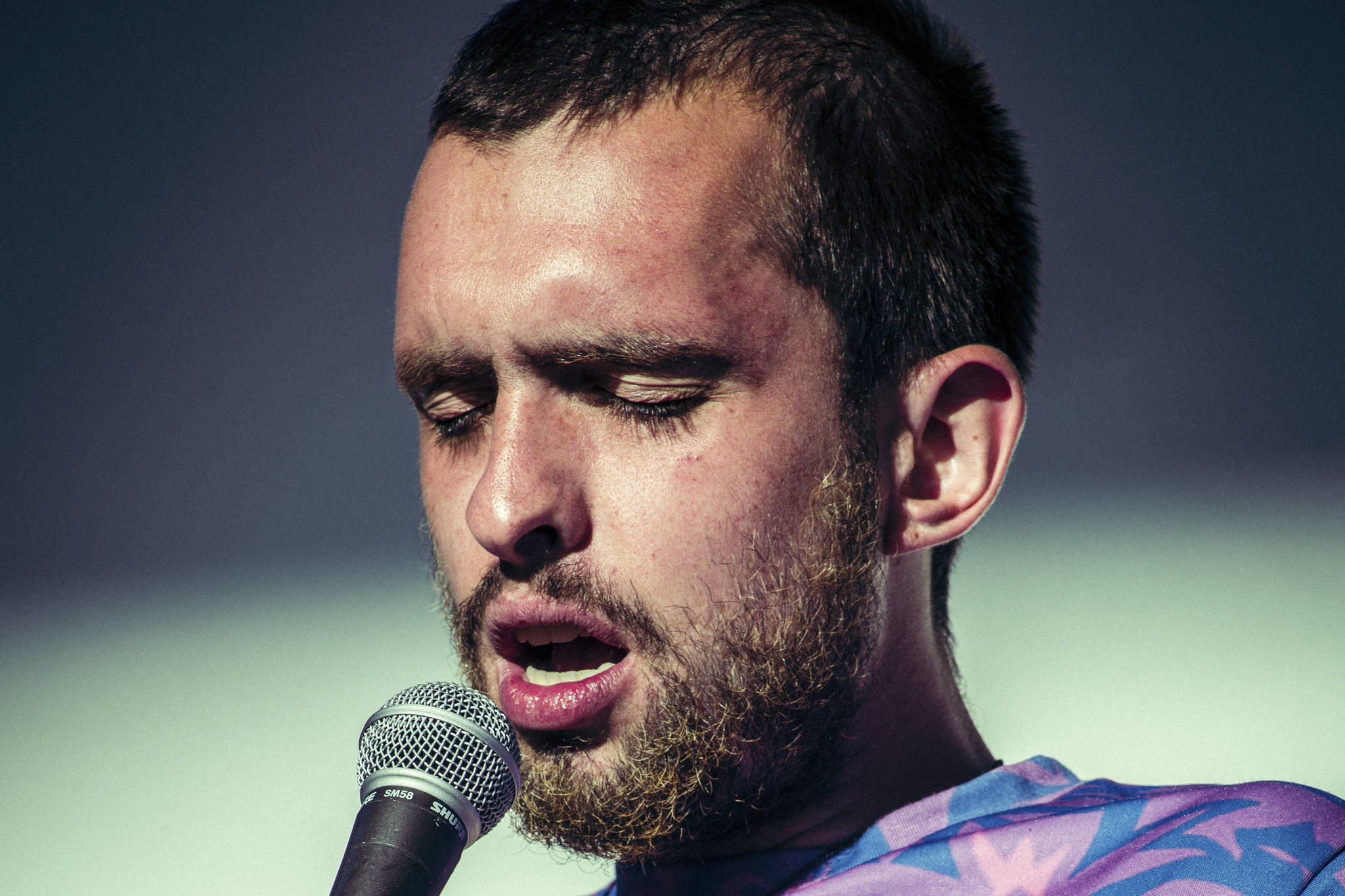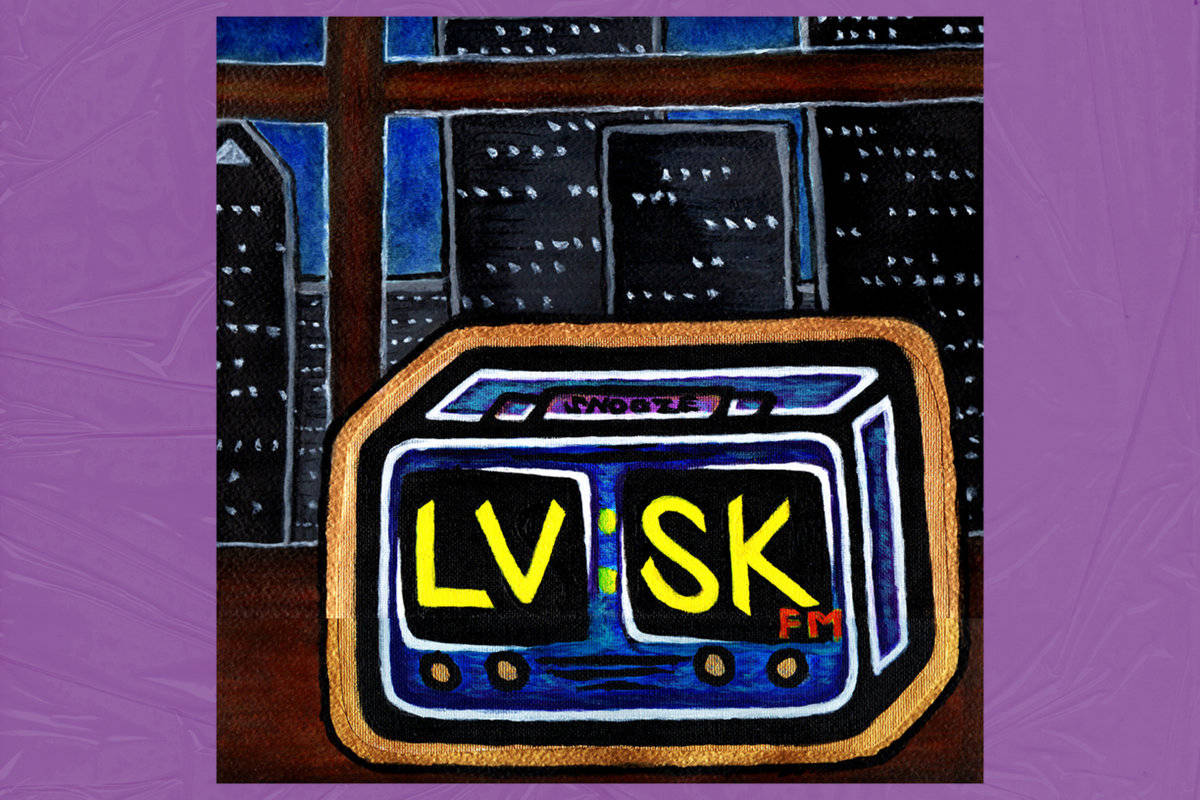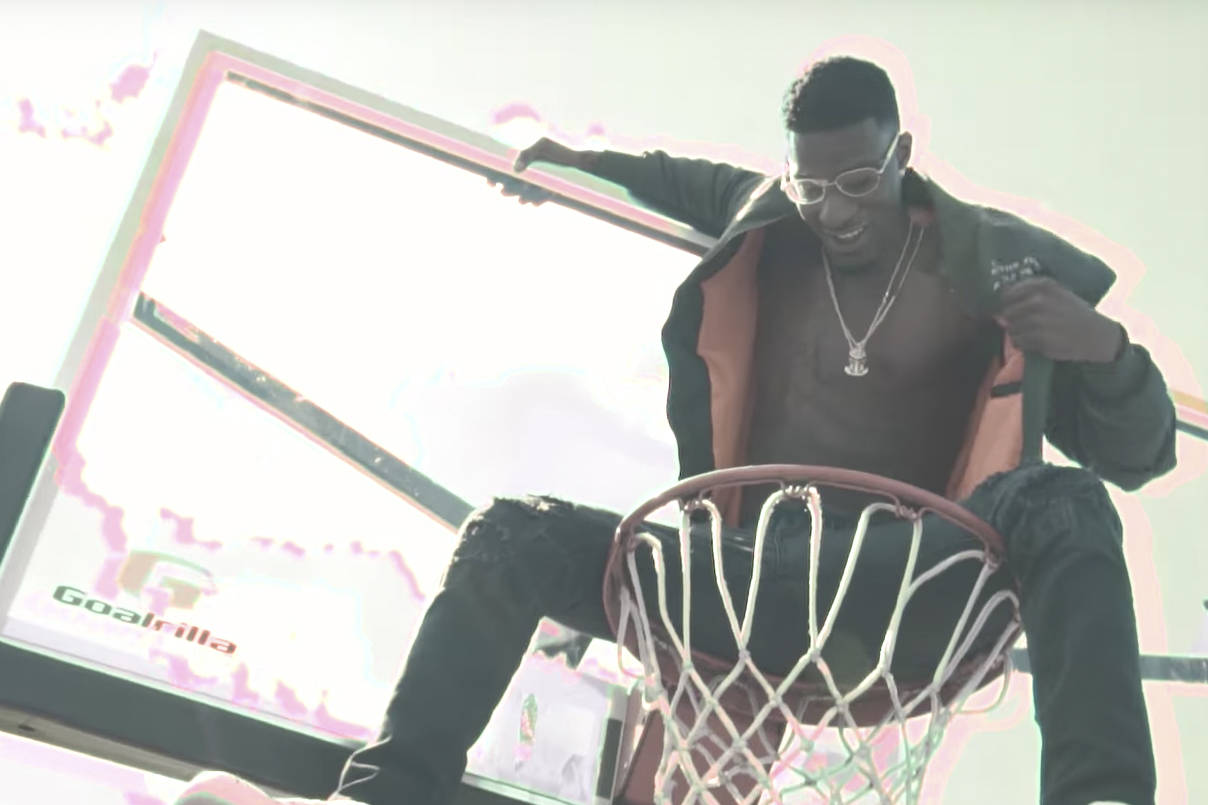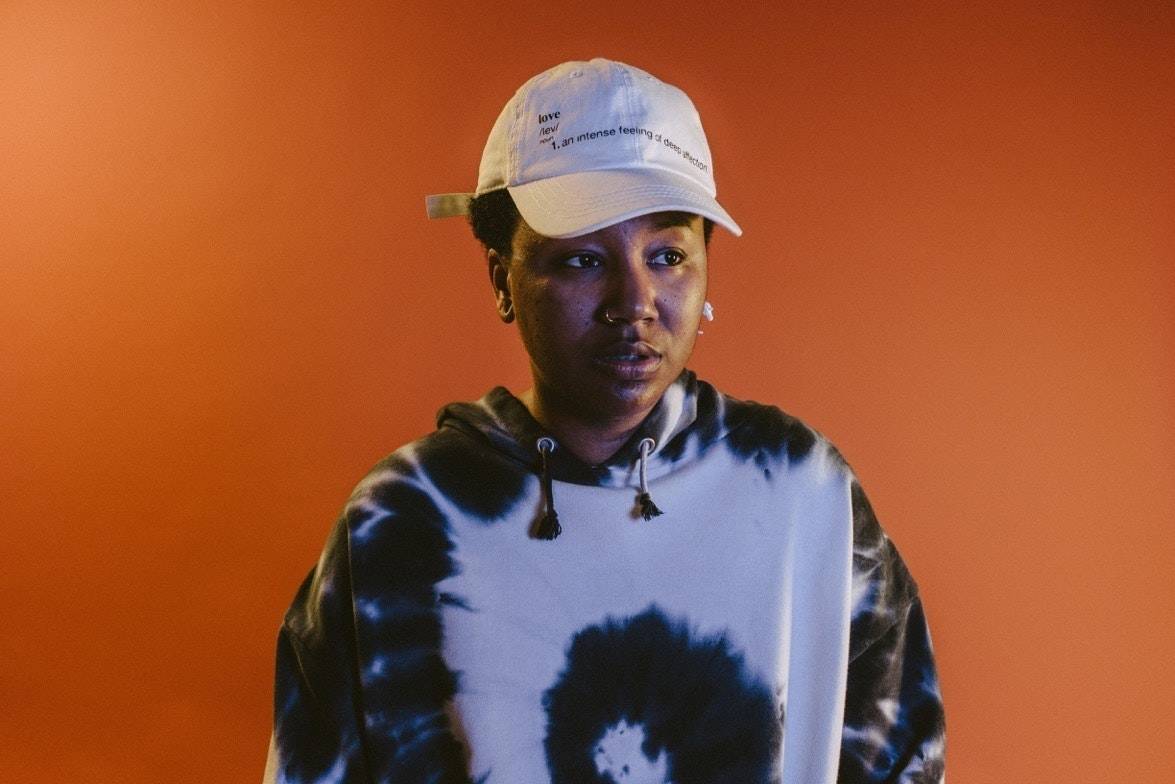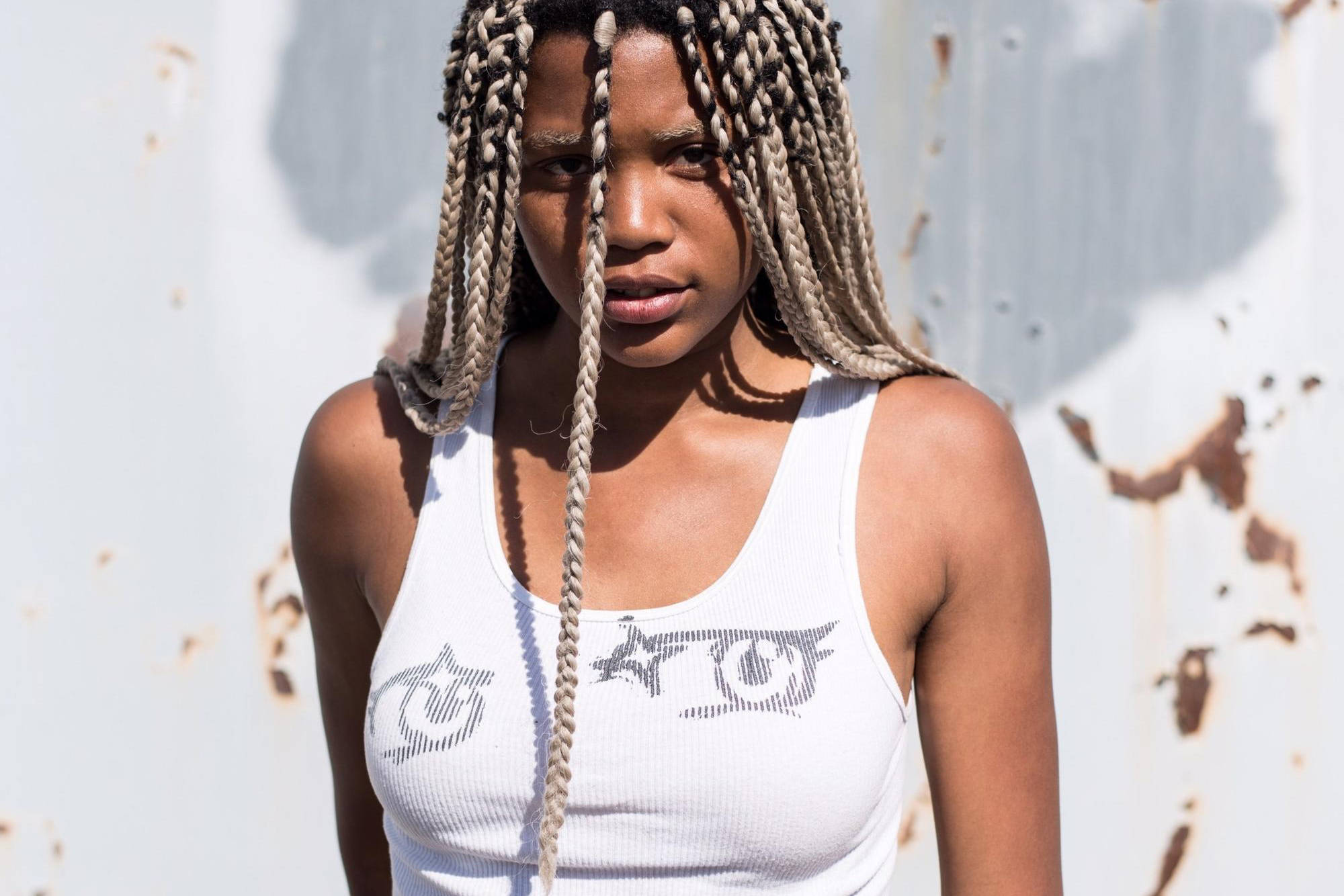Last September, Seattle rapper and 69/50 collective co-founder Raven Mathews, who now goes by RVN, released Disco Christ. The genre-fluid record was a blend of rap, punk, grunge, and EDM that actively avoided falling into any specific category. The sum of those many different parts culminated in a singular emotional exploration of Mathews’ psyche, and played heavily on themes of vulnerability and the nuances of being in a relationship.
On Sept. 27, Mathews releases his follow-up project, Grey Neon, which picks up on a specific sound he experimented with on Disco Christ. “The progress from album to album has been a journey,” he says. “I feel a burning curiosity to try new things. With Disco Christ, I opened some doors and allowed myself to explore. With Grey Neon, I feel like I walked through one of those doors.”
The door Mathews chose to walk through is the sound we heard on Disco Christ’s “Myself”—the layered sounds of acoustic guitar and vocals, the delicate, minimal production, and the raw emotion and self-reflection. “I have always been a fan of melancholy music,” he explains. “I think this project has a melancholy energy to it. A singer/songwriter sound. Definitely a grunge sound, but also a lo-fi hip-hop, almost a trip-hop sound.”
Take “I Don’t Have a Gun,” a song where the instrumentals feel fragile. The soft guitar strums are held together by the raspy bass of Mathews’ voice as he sings “Fish grease popping in the background/I don’t want to pop myself/I don’t have a gun.” The layered vocals feel representative of the layers of his life, the fish grease in the background like his disassociation from his own painful thoughts. He is on the edge of hurt, and without the “gun,” he has no protection.
One of the biggest shifts from Disco Christ to Grey Neon is that Mathews completely dropped rapping. He sings on every track, delivering a solid vocal performance while using his low croon to bring bass to many of the softer instrumentals. “As far as not rapping, it was sort of a natural progression of wanting to sing more and explore that part of myself,” Mathews says. “But it wasn’t too intentional; the tone just felt right in a way. I wanted to explore more of a minimal way of writing and work more with melody.”
His new approach is especially effective on “Bits and Pieces,” one of three tracks on the project not produced by Mathews. The instrumental, produced by Wolftone, has a hip-hop feel while staying true to the project’s gentle tone. Here, Mathews starts with a low heavy voice, but lightens up in the final verse as he sings “Who knew I’d be doing things like this/Maybe I grew, into someone so dismissive/Have no clue.”
The element that truly holds Grey Neon together, a consistent thread from Disco Christ, is the emotion and self-reflection. Mathews is willing to relive his past with unrelenting openness. On “Wounded Teenager” he takes listeners back into his childhood as he speaks to his younger sister. “Mom’s out again,” he sings. “I used to keep you company/But now I turn to sin/Stay in my room smoking weed.” The track breaks down into a sea of dreary synths as he sings apologies to his younger sister Rosemary, whose friendship and closeness he pushed away as he entered his teenage years.
Despite the intensity of the space Mathews is operating in, it’s also a space he seems comfortable in. On Disco Christ he pulled styles and influences from a wide-ranging grab bag. Grey Neon’s focus allows him to flex his ability as a singer/songwriter, a risk that pays off. “This was an exploration of my emotional state and an acknowledgement of my vulnerable side,” Mathews says. “It dwells so far in that realm that I worried it would be a depressing project to listen to. It doesn’t really lighten up. It doesn’t really change tones. That’s why it is short. It’s a mood.” The project may be short in duration, but it is heavy in substance. And while I enjoyed the genre-fluid RVN we saw last year, I’m eager to see development of the soft-grunge RVN we get in Grey Neon.
music@seattleweekly.com
